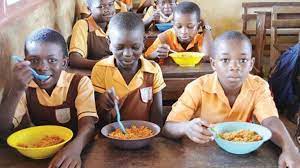As part of its effort to tackle the scourge of rape and other sexual and gender-based violence (SGBV) in the country, the National Human Rights Commission (NHRC) has launched a mobile application tagged @”UNSUB WEB”.
The application which was designed in collaboration with it’s partners UNSUB was aimed at coordinating responses for victims of Sexual and Gender-Based Violence (SGBV) in Nigeria.
While giving more insight on the technology at the unveiling ceremony of the Web in Abuja on Thursday, the Executive Secretary, NHRC, Tony Ojukwu, described rape and SGBV as a global problem, saying it requires a coordinated national solution in order to make meaningful progress.
According to Ojukwu, the Commission the quest was in furtherance of the commission’s desire to have coordinated responses as it sought to end the scourge.
”UNSUB is a cutting edge technology designed to support responders to cases of SGBV to work in sync with others and to also keep track of progress with the aid of technology, ” Ojukwu said.
He revealed further that the commission had a dedicated staff strength in the 36 states of the federation and an automated 24 hours call centre with gender sensitive attendants that operationalizes the UNSUB platform.
“The Nigerian Communications Commission (NCC) has concluded arrangements with NHRC to include it as one of the response agencies in the National Emergency Communications Center ( ECC), this will avail us the use of the 112- toll free number as an added number for reporting SGBV and other human rights abuses,” he added.
Also speaking at the ceremony, representative of the President of the Senate, Ahmad Lawan, said societies must continue to respond appropriately, not just to deter others, but to protect moral fiber, decency and good neighborliness.
Represented by Senator Opeyemi Bamidele, the Senate President observed that failure to be mindful of the rights of others is an invitation to social intervention through the appropriate legal framework.
The UNSUB he said would make methods of apprehension, resolution or management of the cases of SGBV in the country faster.
In his own speech, the Deputy Commissioner of Police force Gender Coordinator, Margaret Ochalla, who represented the Inspector-General of Police, hinted that the Nigeria Police Force has launched its Gender Policy in 2012 and established Gender units in various police commands across the country.
The units in her words were launched due to the prevalence of sexual violence and the need to tackle it.
She said the police had partnered with Ford Foundation on a two year sensitization and awareness program on preventing SGBV across the six- geopolitical zones in Nigeria.
While calling on major stakeholders to join in the fight against SGBV, she said police would not relent in its efforts to investigate and prosecute offenders.
Representative of the Director-General, National Agency for the Prohibition of Trafficking Persons (NAPTIP), Oluwakeji Lebi, told the gathering that the agency had been creating awareness on the Violence Against Persons Prohibition Act( VAPP) and its capacity to act accordingly to redress violations.
Lebi said NAPTIP had rehabilitated and reintegrated SGBV victims and convicted a lot of criminals of such violence with the support among its partners and stakeholders.
“We in NAPTIP acknowledge the giant strides of the NHRC, CANs and key actors in coming up with the UNSUB application which makes reporting of cases of SGBV easily accessible, ” she said.
Also speaking President, International Federation of Women Lawyers (FIDA), Nigeria Rhoda Tyoden, said SGBV affects women, girls, men and boys.
Represented by her Deputy Country Vice President, Amina Agbaje, she also described SGBV as a major obstacle to the achievement of justice and a barrier to sustainable development, economic growth and lasting peace.
She observed that if women, girls, men and boys are not safe, they cannot participate in the development of the society.
“Current findings by Women at Risk International Foundation (WARIF) and NAPTIP reports that over 10, 000 women and girls are raped daily in Nigeria.
“According to a 2014 UNICEF study, 25 per cent of Nigerian girls have experienced sexual violence before the age of 18 compared with 10% of boys.
“In another survey published by NOI polls in 2019 suggests that up to 33 per cent of girls in Nigeria could have experienced at least one form of sexual assault by the time they reach 25,” She added.




